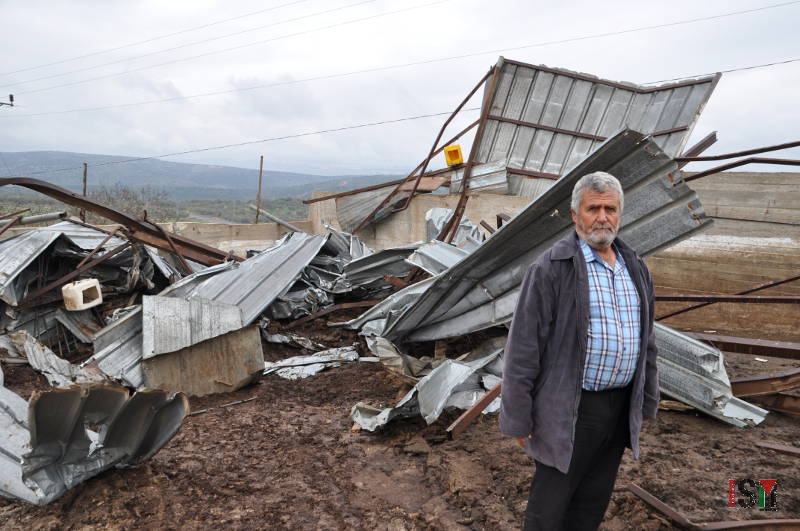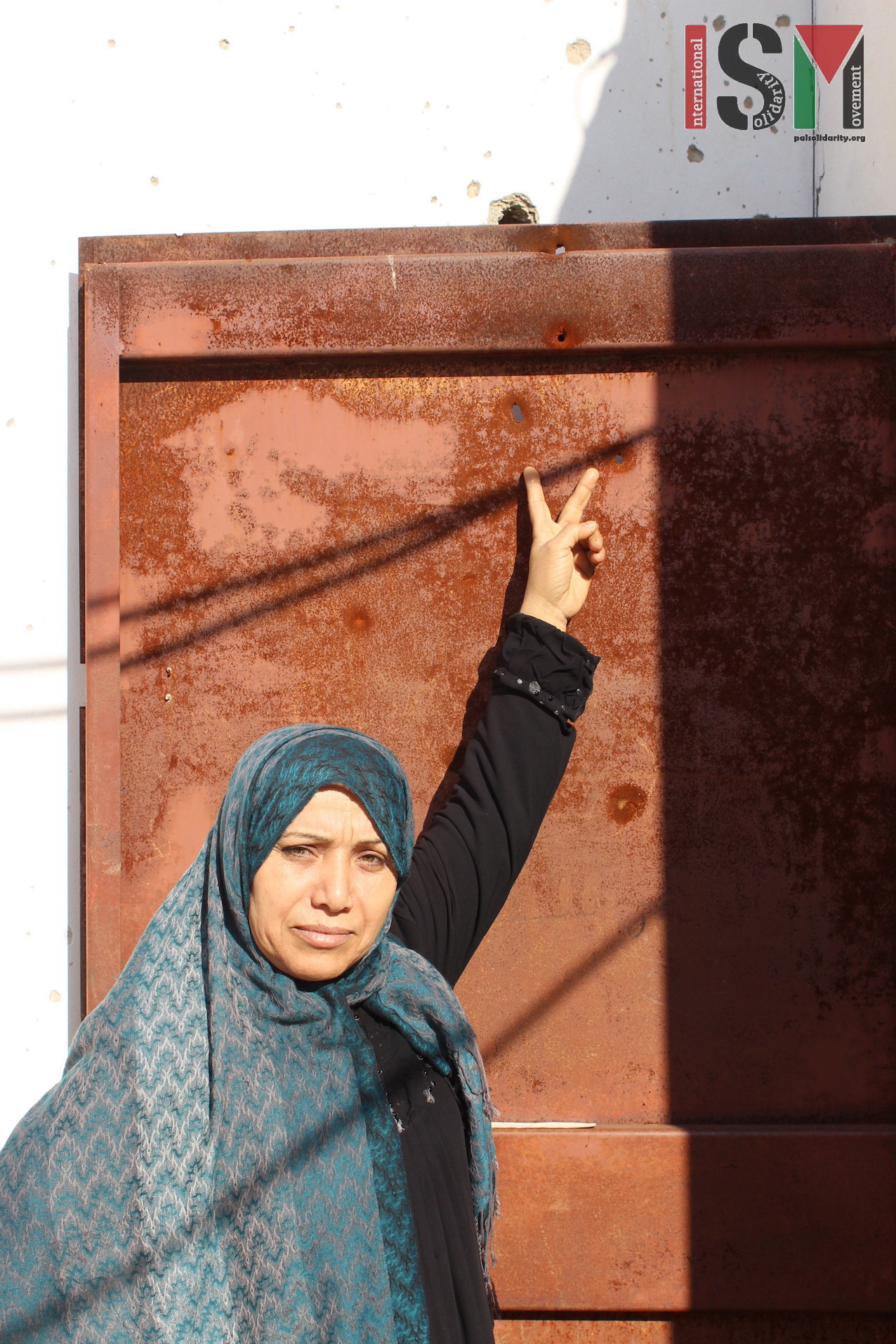Category: Features
-
Israeli forces demolish Palestinian farmhouse, assault family members
24th January 2016 | International Solidarity Movement, Tulkarm Team | Jin Safoot, occupied Palestine In the early morning, 18th January, hundreds of Israeli soldiers entered the Jin Safoot village to demolish a farmhouse belonging to the Palestinian farmer Faed. The barn was serving as a shelter for his animals and he wasn’t allowed to remove…
-
Daily harassment and boycott of Palestinian businesses in the Old City of Jerusalem
22th January 2016 | International Solidarity Movement, Ramallah Team | Jerusalem, occupied Palestine Three days ago, the ISM visited the Old City in Jerusalem to talk with different Palestinian residents who live and work there and see what the situation is like nowadays. Harassment by the Israeli Police, particularly on the youth, is a…
-
Gazan families struggle to survive in wreckage left by Israel’s 2014 attack
22nd January 2016 | International Solidarity Movement, Gaza Team | Beit Hanoun, Gaza strip, occupied Palestine During the latest massacre in Gaza 60-year-old Fatma was one of the many Gazans who lost her home. She was sheltering in an UNRWA school along with her husband and 4 daughters when the Israeli occupation forces bombed their home. Once the aggression…



